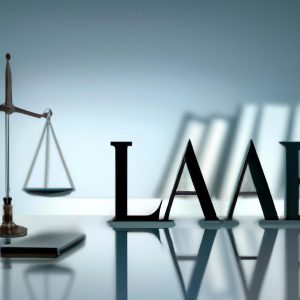Within the realm of estate planning, two key documents often come to the forefront of discussions: a trust and a will. Many individuals may wonder if they can have both a trust and a will, and if so, how these documents can work together to ensure their assets are properly managed and distributed. In this article, we will delve into the complexities of having both a trust and a will, exploring the benefits and considerations that come with each. As experienced attorneys at Morgan Legal Group in New York City, specializing in estate planning, probate, elder law, Wills, and trusts, we aim to provide clarity on this important aspect of planning for the future.
– Understanding the Relationship Between Trusts and Wills in Estate Planning
In estate planning, it is essential to understand the relationship between trusts and wills. While trusts and wills serve similar purposes of distributing assets to beneficiaries, they operate in different ways and have distinct advantages. A trust is a legal entity that holds assets on behalf of beneficiaries, managed by a trustee according to the terms of the trust document. On the other hand, a will is a legal document that outlines how a person’s assets should be distributed after their death, appointing an executor to carry out these wishes.
One common misconception is that having a trust means you don’t need a will. However, it is recommended to have both a trust and a will to ensure that all your assets are properly accounted for and distributed according to your wishes. A trust can help avoid probate, provide privacy, and offer more control over how assets are distributed. On the other hand, a will is necessary for naming guardians for minor children, appointing an executor, and ensuring any assets not included in the trust are distributed according to your wishes. By having both a trust and a will in place, you can create a comprehensive estate plan that protects your assets and ensures your wishes are carried out effectively.
– The Benefits of Having Both a Trust and a Will
Having both a trust and a will can provide a comprehensive estate plan that ensures your assets are distributed according to your wishes. A trust allows you to control how your assets are distributed during your lifetime and after your passing, while a will is a legal document that specifies how your assets should be distributed after your death. By having both a trust and a will in place, you can cover all aspects of your estate planning needs.
One of the main benefits of having both a trust and a will is that they work together to ensure your assets are protected and distributed efficiently. A trust can help you avoid probate, minimize estate taxes, and protect your assets from creditors. On the other hand, a will can be used to appoint guardians for minor children, specify funeral arrangements, and distribute any assets not included in the trust. Having both a trust and a will in place can provide peace of mind knowing that your wishes will be carried out smoothly and efficiently.
- Key Considerations and Recommendations for Establishing Trusts and Wills Together
When it comes to estate planning, many people wonder if they can have both a trust and a will. The short answer is yes, you can have both a trust and a will, and in fact, it is often recommended to have both in place. Each document serves a different purpose and can work together to ensure your assets are distributed according to your wishes.
Key considerations and recommendations for establishing trusts and wills together include:
- Consult with a professional: It is important to seek the advice of an experienced estate planning attorney who can help you determine the best strategy for your unique situation.
- Understand the differences: A trust allows you to transfer assets to beneficiaries without going through probate, while a will outlines your wishes for the distribution of your assets after your death.
- Consider your specific needs: Depending on your assets, family situation, and goals, a combination of a trust and a will may be the most effective way to achieve your estate planning objectives.
Q&A
Q: Can you have a trust and a will at the same time?
A: Yes, you can have both a trust and a will.
Q: What is the difference between a trust and a will?
A: A trust is a legal arrangement in which a person (or entity) holds property or assets for the benefit of another, while a will is a legal document that outlines how a person’s assets should be distributed after their death.
Q: Do I need both a trust and a will?
A: It depends on your individual circumstances and goals. A trust can provide more control and privacy over how your assets are distributed, while a will is necessary to cover any assets not included in the trust.
Q: Can a trust and a will contradict each other?
A: It is possible for a trust and a will to contradict each other if they are not properly coordinated. It is important to review both documents regularly and make updates as needed to ensure they are in alignment.
Q: How should I go about setting up a trust and a will?
A: It is recommended to work with a qualified estate planning attorney to draft both a trust and a will that meet your specific needs and goals. They can help you navigate the complexities of estate planning and ensure that your assets are protected and distributed according to your wishes.
The Way Forward
In conclusion, while it may seem redundant to have both a trust and a will, each serves a unique purpose in ensuring that your assets are distributed according to your wishes. Whether you choose to utilize one or both of these estate planning tools, it is important to consult with a legal professional to determine the best course of action for your individual circumstances. By carefully considering the benefits of both a trust and a will, you can rest assured that your legacy will be protected for future generations to come. Thank you for reading!
Trusts and wills are essential legal documents that play a crucial role in estate planning. They both serve the purpose of managing and distributing assets after a person’s death, but they have distinct differences. Many people wonder whether they can have both a trust and a will, and the answer is yes. In fact, having both a trust and a will can provide comprehensive protection and control over your assets. In this article, we will dive into the details of trusts and wills, their differences, and the benefits of having both in your estate plan.
What is a Trust?
A trust is a legal entity created to hold and manage assets for the benefit of its beneficiaries. It transfers ownership of the assets from the grantor (person creating the trust) to the trustee, who manages and distributes the assets according to the terms of the trust. There are different types of trusts, and each serves a specific purpose, but they all have the same basic structure.
What is a Will?
A will, also known as a last will and testament, is a legal document that outlines how a person’s assets will be distributed after their death. It also appoints an executor responsible for carrying out the wishes detailed in the will. Unlike a trust, a will only takes effect after a person’s death, and it can be changed or revoked at any time before then.
Differences Between Trusts and Wills
Trusts and wills may seem similar, but they have distinct differences that serve different purposes. These differences include:
1. Time of Execution
As mentioned earlier, a trust can be created while the grantor is alive and can exist after their death. On the other hand, a will only takes effect after a person’s death.
2. Control and Flexibility
A trust offers more control and flexibility over the management and distribution of assets. The grantor can specify when and how much of their assets will be distributed to the beneficiaries. In contrast, a will provides less control, as the assets are distributed according to the will’s terms after the person’s death.
3. Probate
Probate is the legal process of validating a will and distributing assets to the beneficiaries. A trust, being a separate legal entity, does not go through probate, saving the beneficiaries time and costs associated with the process. A will, on the other hand, has to go through probate, which can take several months and can be costly.
4. Privacy
The distribution of assets through a trust remains private, as it does not go through probate and is not made public. A will, on the other hand, becomes part of the public record once it goes through probate. This means that anyone can access the information about your assets and how they are distributed.
Having Both a Trust and a Will
Having both a trust and a will in your estate plan can provide comprehensive protection and control over your assets. While a trust covers most of your assets and their distribution, a will acts as a backup and covers any assets that were not transferred to the trust during your lifetime. Additionally, a will can appoint guardians for minor children and detail funeral arrangements, which cannot be included in a trust.
The practical tips
Creating a trust and a will requires careful consideration and planning. To ensure that both documents are legally valid and accurately reflect your wishes, it is best to seek the assistance of an estate planning attorney. They can also help you determine the types of trusts that best suit your needs, whether it is a revocable living trust, irrevocable trust, or a testamentary trust.
Case Studies
Let’s look at two different scenarios to understand the importance of having both a trust and a will in your estate plan.
Case Study 1: John had a revocable living trust that covered most of his assets, but he also had a sizeable investment account that he forgot to transfer to the trust. When he passed away, the investment account had to go through probate and was subject to estate taxes, resulting in a significant loss of value. This could have been avoided if he had a will that included the investment account and appointed his children as beneficiaries.
Case Study 2: Sarah had a revocable living trust and a will, but she failed to update them when her husband passed away. As a result, her will still named her husband as the executor and beneficiary of her estate. This led to conflicts among her children and an unfavorable distribution of assets. If Sarah had regularly updated her trust and will, she could have avoided these issues.
Conclusion
In conclusion, it is possible and beneficial to have both a trust and a will in your estate plan. They serve different purposes and provide comprehensive protection and control over your assets. It is crucial to regularly review and update these documents to ensure they accurately reflect your wishes and avoid any potential conflicts or losses. Consult with an estate planning attorney to create a customized plan that suits your specific needs and goals. Remember, it is never too early to start planning for the future and protecting your assets for your loved ones.






